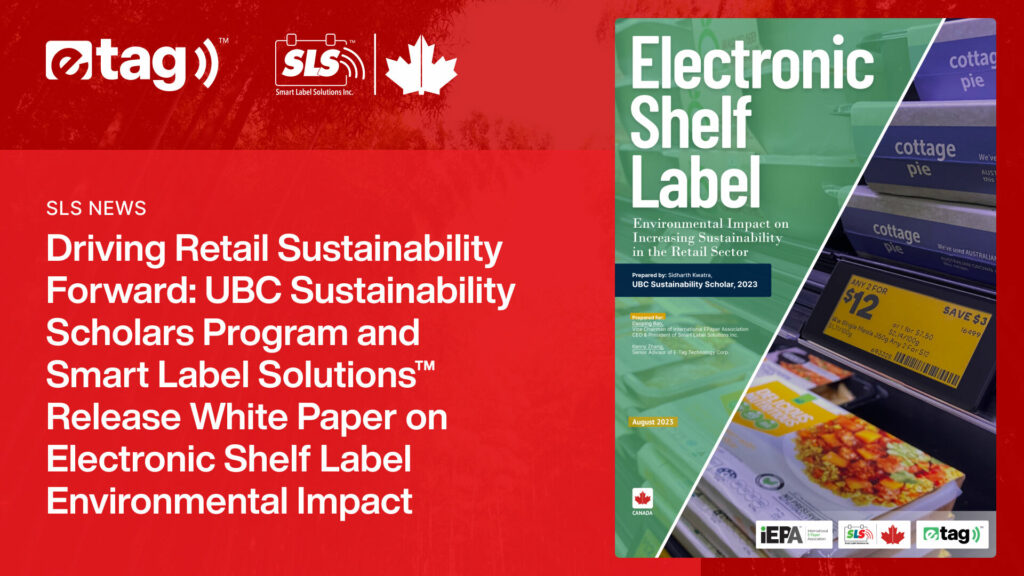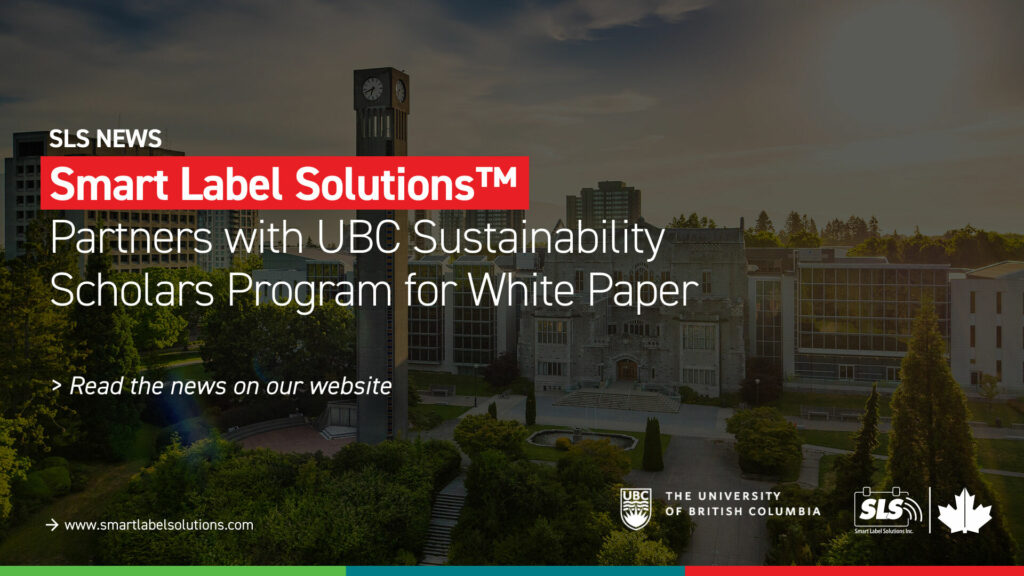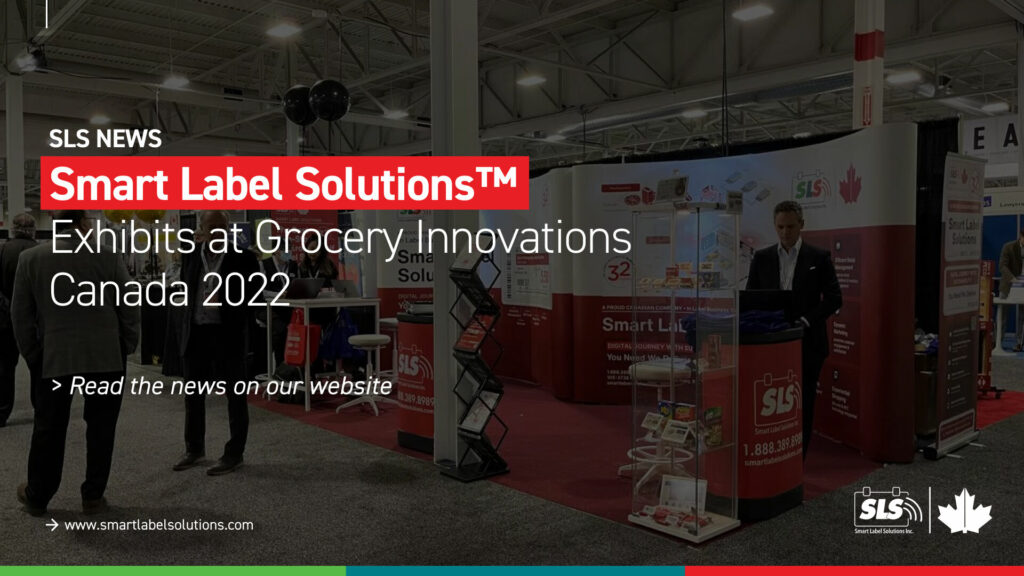Smart Label Solutions Inc. is proud to announce its partnership with the UBC Sustainability Scholar’s Program in releasing a white paper titled “Electronic Shelf Label Environmental Impact on Increasing Sustainability in the Retail Sector.” This groundbreaking report delves into the environmental implications of replacing traditional paper shelf labels with electronic shelf labels (ESLs) in the Canadian retail industry, with a particular focus on greenhouse gas emissions.
The retail sector has long grappled with the ecological challenges posed by excessive paper usage, contributing to over a third of Canada’s waste production, with only a quarter being recycled. Additionally, paper-based labels are not only time-consuming but also susceptible to errors, resulting in substantial losses. Furthermore, paper production itself is a significant source of carbon emissions.
To address these pressing concerns, the white paper explores the potential benefits of adopting ESLs in Canadian retail stores. ESLs not only eliminate paper waste but also enable dynamic pricing and efficient label management. Their success has been demonstrated across various global regions, making them a promising solution for the Canadian retail landscape.
The research conducted in this report estimates the overall paper consumption within the retail industry. Notably, the North American ESL market’s potential is valued at a staggering $126 billion, while the current market size stands at $2.2 billion. The ESL market is projected to reach $4 billion within the next five years, underscoring the industry’s growth potential.
Key findings reveal that the transition from paper shelf labels to ESLs offers several advantages, including reduced paper waste, dynamic pricing capabilities, and an enhanced customer experience. However, the adoption of ESLs raises an important environmental concern – the disposal of used batteries. Approximately 2 million used batteries are projected to become waste in 2023, taking over a century to decompose in landfills. Thus, policymakers, industry stakeholders, and researchers must prioritize addressing this issue through government policies, standardization efforts, and battery alternatives.
In addition, the report notes that replacing 5,840 paper labels with a single electronic label over eight years can potentially save 8.52 kilograms of CO2 equivalent emissions. Extrapolating this to the entire Canadian retail sector, the savings could reach 0.235 megatons of CO2 equivalent emissions annually if all paper labels change to electronic labels.
In conclusion, the white paper underscores the compelling opportunity ESLs present for mitigating the environmental challenges associated with paper labels in the Canadian retail sector. By significantly reducing paper waste and facilitating dynamic pricing, ESLs can benefit both retailers and customers. However, it emphasizes the urgent need to address the environmental impact of battery waste, aligning with Canada’s commitment to achieving net-zero greenhouse gas emissions by 2050. The paper’s findings underscore the feasibility and desirability of adopting ESLs as a sustainable solution for the retail industry.
For in-depth insights and a comprehensive understanding of this groundbreaking research, you can access the full white paper on the UBC Sustainability Scholars website here. Join us in revolutionizing sustainability in the retail sector!
Why choose Smart Label Solutions™ as your ESL solution provider and partner
Smart Label Solutions™ is a solution driven, service minded company, and a world leading e-paper application provider with over 32 years of experience and excellence in the label industry. We’ve worked with some of the world’s largest retailers, and as a people-first company, we build trusting partnerships with our clients. Our electronic shelf label solution is tailored to suit your individual store scenario.
Get in touch with SLS today to get started with electronic shelf labels.



